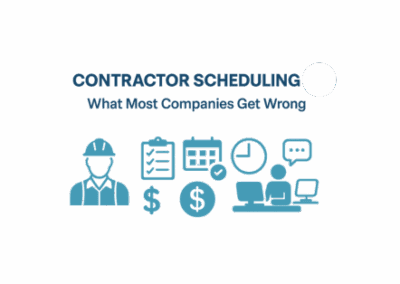Following on from the global pandemic, most businesses have been working towards their return to full operations. This includes re-hiring for jobs that were terminated during the pandemic, taking staff off furlough, and even creating new roles. In fact, in April and May 2021, the U.S Bureau of Labor Statistics reported over 9 million job openings. This is the highest record since the BLS began reporting job openings in 2000. Despite these record numbers, unemployment has failed to decline. The lack of improvement in unemployment rates leads us to believe that there is a labor shortage across the U.S and Canada. But is there actually a labor shortage happening right now? Or are there other factors coming into play?
What is a Labor Shortage?

A labor shortage is the consequence of labor supplied being less than labor demanded at currently offered compensation levels. Basically, there are more job openings than there are workers willing to fill them for the compensation being offered.
Labor shortages aren’t new, and can generally occur for any number of reasons. Of course, this time around we can pinpoint why this perceived labor shortage is occurring – the pandemic. At present, businesses are pushing to get back to pre-pandemic operations but instead are forced to reduce hours and offerings as they struggle to hire staff. In a time where businesses should be thriving and growing, they are forced to cut back.
The Current Situation
As we know, there are currently more job openings than there were before the pandemic hit. Although there are not enough workers willing to fill those jobs, there is still a debate whether there is actually a labor shortage or not. Other important metrics such as long-term joblessness are dropping, causing a divide in opinion. According to the U.S Department of Labor, while unemployment is lower than it was at the peak of the pandemic, it is still much higher than it was before the pandemic. Regardless of the data and the reasons behind this apparent labor shortage, the problem is very real for business owners who can’t find staff.
The hardest-hit industry during this labor shortage is without doubt hospitality. The industry has experienced the largest gaps in employment over the last 18 months and has also seen the largest increase in job openings in 2021. The reality is that the hospitality industry offers low wages and benefits, even since before the pandemic. It also doesn’t help that even in the best of times, the industry is subject to high levels of employee turnover.
Employees in the hospitality industry quickly found out how vulnerable they are and have since started looking for work elsewhere. Studies have found that 70% of unemployed hospitality workers are looking for work in other industries. This is a prime example of what may be causing this labor shortage – workers looking to change sectors, go back to education, start their own businesses, or simply refusing to settle for poor compensation. So, what can employers do to overcome these challenges?
How to Hire Skilled Workers during a Labor Shortage
The workers are out there, employers just need to know how to hire them. In situations like this, employers need to up their game in order to attract skilled workers. Earlier, in our definition of a labor shortage, we highlighted that the shortage generally exists due to workers not being willing to fill roles for the compensation being offered. There are many ways that employers can improve their offering to jobseekers, let’s break them down.
Pay Well
Starting at the most basic thing you can do to attract skilled workers during a labor shortage, pay well. The days of offering minimum wage (or less) are long gone. Workers are more aware than ever of how valuable they are, and are willing to wait it out for the right wage. It’s totally understandable that businesses are reluctant to simply increase their wages. After the pandemic, businesses are more than likely operating at tight profit margins, so increasing pay is the last thing they feel they should do.
However, given that employees are pretty essential to the success of a business, think of raising wages as a long-term investment. There are plenty of options to cut other costs, and the chances are that hiring the right amount of staff will save you a lot of money on overtime. Investing in the right staffing levels with skilled workers will lead to happier customers and clients, and likely improved profitability in the long run.
Provide Benefits (that workers want)

Even before the labor shortage, workers’ needs and wants have been changing for some time now. In the past, employees would be happy to collect their paycheck and be on their merry way. However, the labor market has higher demands than ever before. It is in your best interest to dig into what your potential employers might want in a benefits package and do your best to provide that.
Generally, when it comes to hourly or shift workers, there are some benefits that are more important than others. Of course, healthcare, dental, and vision are standard benefits packages. On top of that, consider your vacation offerings, wellness packages, and even referral bonuses. These are particularly beneficial during a labor shortage as you are improving the likelihood of hiring the right staff while also encouraging them to refer other workers for the job. Win, win.
Provide Support & Assurance
Given the circumstances surrounding the current labor shortage, stability and support are at the forefront of job seekers’ priorities. Where possible, offer permanent contracts that provide security to employees, and put their minds at ease. It is very likely that those who are seeking work at the moment have lost their job in the past, and will be hoping to reduce the risk of it happening again where possible.
The pandemic has created unprecedented levels of anxiety in the workforce. As an employer, be sure to create a safe space for new employees and provide them the support they need. Even just recognizing the worries of job candidates makes them feel heard and more likely to consider working at your organization.
Offer Opportunities for Growth
Following on from the support and assurance that employees will need, opportunities for growth and progression are also important. Given the recent uncertainty that hourly and shift workers have experienced, having a goal to work towards in their new position is a great reason to take a job. Aside from showing prospective employees how they can climb the ladder within your organization, offer other development opportunities.
Whether its paid training, education benefits or industry certifications, offering opportunities to your employees will definitely help you attract top talent. Not every organization will be able to offer these incentives, but there is always something you can do. The main objective is to show applicants that you care about your employees, and value them all individually. Avoid letting applicants think that they are applying for a “dead-end” job.
Improve the Job Application Process
What does an applicant currently have to do to apply for a job vacancy at your organization? It’s very possible that your application process is acting as a barrier to entry for applicants, which isn’t ideal during a labor shortage. The most obvious deterrent for a job application is failure to disclose the salary or wages that the role carries.
On top of that, you should also clearly lay out the job application process so that applicants know what to expect. Explain what steps are involved in the process, whether it’s multiple interviews, skills assessments or even a trial. Trials however should be paid, or they act as a further deterrent.
Be Flexible
While all of the above steps are important, employee scheduling and workplace flexibility are equally as important. According to research from LinkedIn, 54% of hiring professionals say work flexibility encourages retention and 51% agree it attracts candidates. Employees are seeking work-life balance now more than ever, and flexibility is one of the easiest ways to provide that to them. As an employer, there are many ways you can offer flexibility to prospective and existing employees.

Employee scheduling is the best area to introduce flexibility, allowing employees to self-schedule or bid for open shifts. Give employees autonomy over their schedule, and you will reap the rewards. During a labor shortage, it is just as important to retain your existing employees as it is to hire new talent. Self-scheduling and shift bidding allow employees to work the days that suit them, and create a schedule that compliments their personal lives. Employee scheduling software from Celayix can help you introduce these flexible scheduling methods, and attract the skilled workers you need.
During challenging times like this, trying to recover from the global pandemic and facing a shortage of workers, businesses need to pause, reset and make changes. In business, being able to react and adapt is essential. The market has changed in terms of what workers seek from employers, and at present, organizations need to address those needs and provide them. Not only will these changes help you attract new talent, but it will build better relationships with your existing employees. The sooner you can make these changes, the sooner the talent will be knocking on your door!




